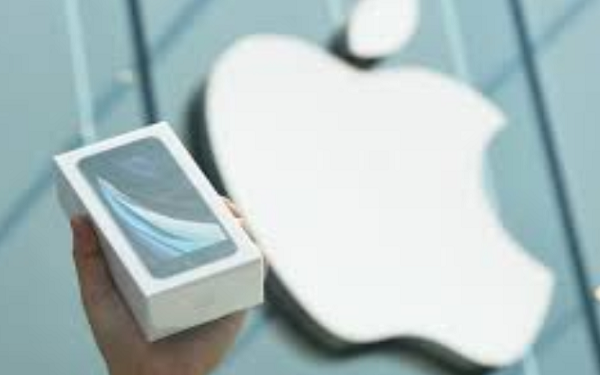
NexOptic Technology Corp (TSXV: NXO)
You’ll Never See The World The Same Way Again

Smartphone sales volume fell 25% Y/Y in Q2, according to new Counterpoint Research data.
Apple’s (NASDAQ:AAPL) iPhone sales fell 23% in the period but volumes grew through the quarter, driven by the low-cost iPhone SE.
Counterpoint says the SE has been “selling above expectations in both postpaid and prepaid channels.”
Over a quarter of SE users had switched from an Android device and 30% upgraded from an iPhone 6s or older.
Earlier today, Consumer Intelligence Research Partners data showed that the SE made up nearly one-fifth of all iPhone purchases in Q1.
The $399 iPhone SE launched in late April, four years after the tech giant’s first budget-friendly model.
IT services company DXC (NYSE:DXC) is selling its healthcare software provider business to Dedalus Group for $525M in cash. The transaction is expected to close by March 2021.
“The sale of our healthcare provider software business to Dedalus is consistent with our strategy of focusing on the Enterprise Technology Stack and rationalizing our portfolio. The transaction promises to be beneficial to all our key stakeholders, including our customers and our people,” says DXC CEO Mike Salvino.
DXC shares are up 1.5% after hours to $17.15.
IBM’s (NYSE:IBM) Q2 revenue declined for the second quarter in a row as the pandemic put the expected pressure on cognitive software and global technology sales.
Big Blue still beat analyst estimates on the top and bottom line, sending shares up 6.6% AH.
Red Hat revenue was up 17% Y/Y.
Revenue breakdown: Global Technology Services, $6.32B (-8% Y/Y; consensus: $6.2B); Cloud and Cognitive Software, $5.75B (+3%; consensus: $5.74B); Global Business Services, $3.89B (consensus: $3.72B); Systems, $1.85B (+6% Y/Y; consensus: $1.6B).
Global Technology was down on the year due to declines in application management and consulting.
Total cloud revenue was up 30% to $6.3B.
Gross profit margin was 48%, one percentage point above consensus.
Cash from operating activities totaled $3.6B with FCF of $2.3B.
IBM ended the quarter with $14.3B of cash on hand including marketable securities, up from $5.2B at the end of last year.
Debt totaled $64.7B, including $21.9B in Global Financing debt.
Earnings call starts at 5 PM ET with a webcast here.
DigiTimes sources say Samsung (OTC:SSNNF,OTC:SSNLF) is struggling to raise 5nm process yield rates.
Industry sources say Samsung’s delay could impact the launch of Qualcomm’s (QCOM -0.2%) next-generation flagship 5G mobile chip series, which previous reports have identified as the Snapdragon 875G. Samsung could also be splitting the orders for the X60 5G modem with TSMC.
In April’s Q1 results, Samsung said it would start mass production of the chips in Q2 using its own EUV process.
But the company didn’t get ASML’s EUV equipment installed until the end of June, putting the process in the very early stages.
Last week, rival TSMC said it expected 5nm process tech to account for about 8% of its total wafer revenue for the year (prior: 10%) and lifted its FY capex to $16-17B.
Ericsson (NASDAQ:ERIC) and Nokia (NYSE:NOK) are chewing over earlier gains on the WSJ report that China may put export controls on the companies’ China-made products.
That move could come as retaliation for a move by EU countries to ban Huawei.
Ericsson is still up 3.9% on a morning where SoftBank chose the company for cloud-native 5G core. Nokia is moderating gains, now up 0.8%.
Chinese export controls would prevent the two Scandinavian countries from sending their products made in China to other countries – a “worst-case scenario” that Beijing would only deploy if EU countries banned Chinese suppliers from their 5G networks.
The EU hasn’t implemented such a ban, but has released recommendations that member states could voluntarily restrict Huawei’s presence in their countries.